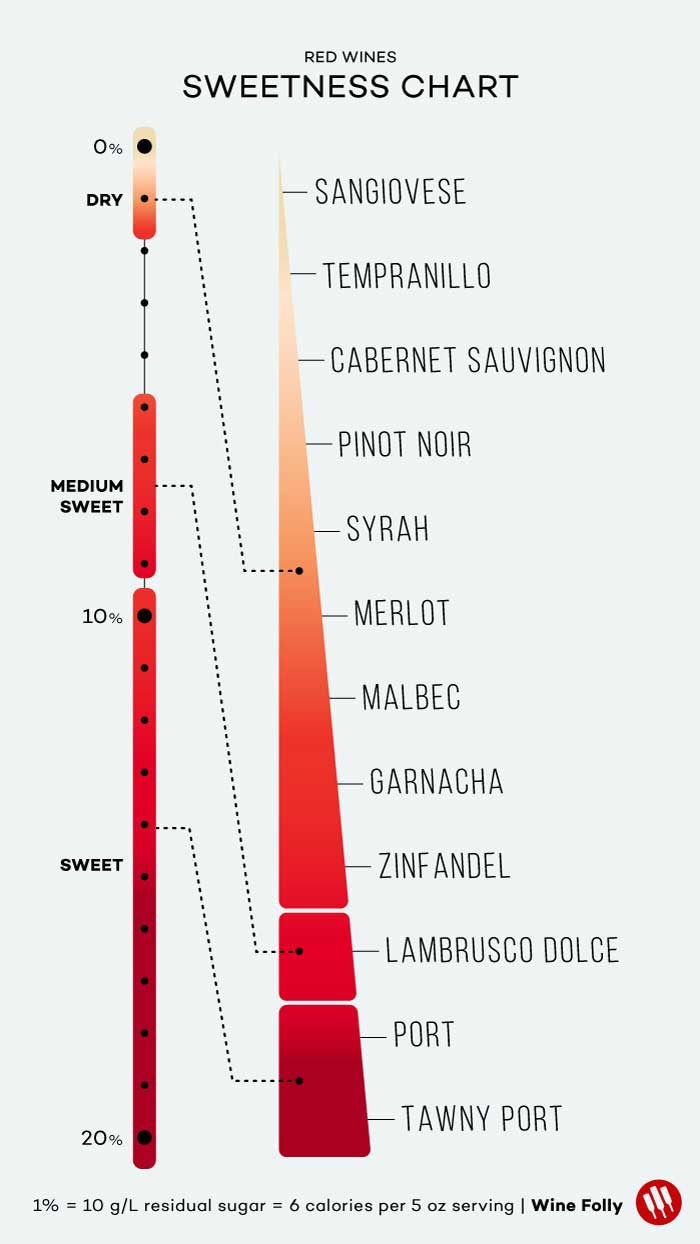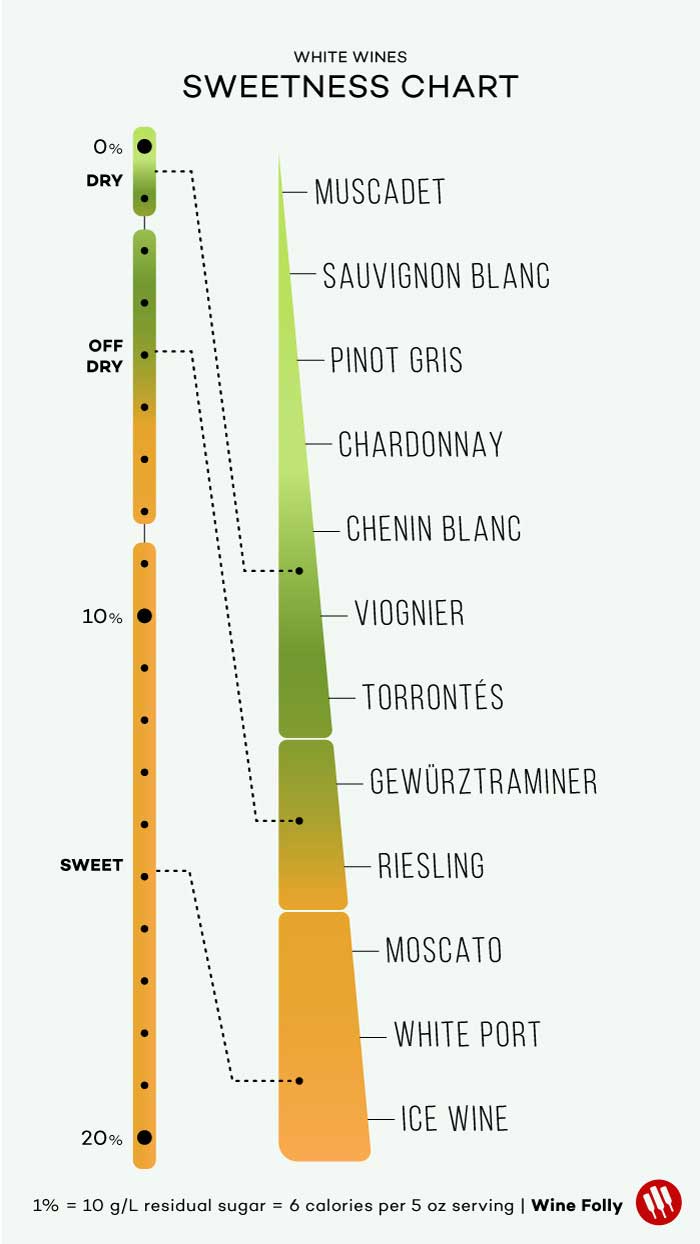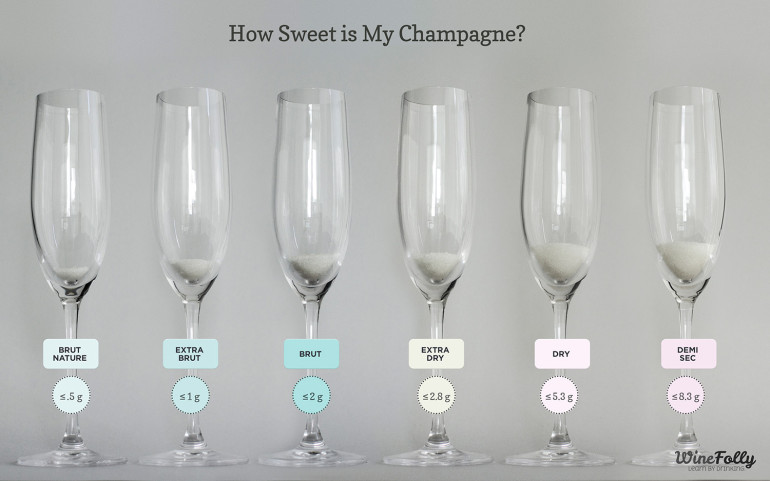Any wine, be it Riesling or Cabernet, can be either dry or sweet. Let’s explore popular wines listed in order from dry to sweet.
The winemaker determines its sweetness. Popular varietal wines and styles tend to share the same sweetness level. Wine sweetness ranges from virtually nothing to upwards of 70% sweetness (like a rare bottle of Spanish PX!).
Since wine ranges in sweetness, you have to do some research to figure out the actual residual sugar in a specific bottle. You can use wine tech sheets to find the exact number. (So helpful!)
When reading a tech sheet:
- Below 1% sweetness, wines are considered dry.
- Above 3% sweetness, wines taste “off-dry” or semi-sweet.
- Wines above 5% sweetness are noticeably sweet!
- Dessert wines start at around 7–9% sweetness.
- By the way, 1% sweetness equals 10 g/L residual sugar (RS).
- 1% sweetness is a little less than two carbs per 5 oz serving (~150 ml).
By the way, the average wine drinker can’t detect sweetness levels below 1.5%. Shocking, right? That said, trained tasters can guesstimate sweetness within about 0.2% – this is totally learnable!
Where Does the Sweetness in Wine Come From?
Thousands of years ago, winemakers figured out how to stop fermentation (by various means), resulting in leftover grape sugars.
Wine geeks call these leftover sugars “residual sugar.” There are some poor-quality sweet wines that add sugar after fermentation to make them sweeter, but this is generally frowned upon. The exception to this rule is sparkling wine.
In truth, we are not particularly adept at sensing sweetness. For example, bitterness, or tannins in wine, reduces the perception of sugar. So does acidity.
Unlike still wines, sparkling wines can have added sweetness! Read more about Champagne sweetness levels (from Brut to Doux).


